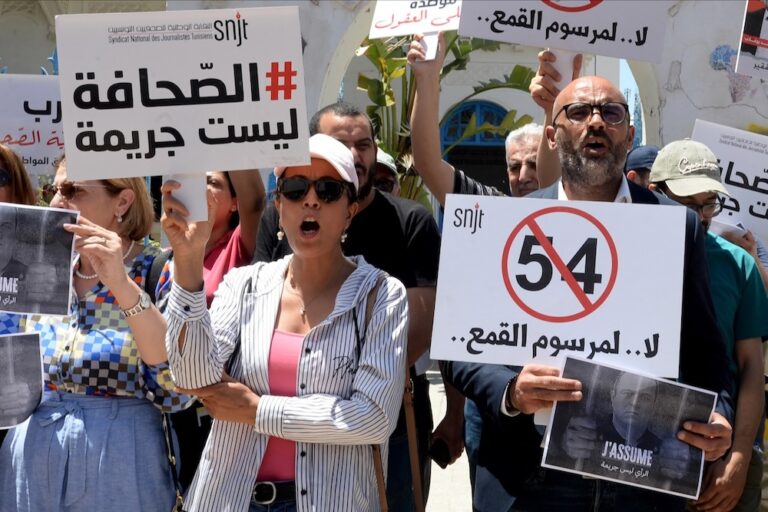(IFLA/FAIFE/IFEX) – The following is a 26 September 2005 IFLA/FAIFE press release: International Federation of Library Associations and Institutions Committee on Free Access to Information and Freedom of Expression Press release 26 September 2005 IFLA, WSIS and intellectual freedom in Tunisia On the occasion of the launch of the IFLA/FAIFE and the International Freedom of […]
(IFLA/FAIFE/IFEX) – The following is a 26 September 2005 IFLA/FAIFE press release:
International Federation of Library Associations and Institutions
Committee on Free Access to Information and Freedom of Expression
Press release 26 September 2005
IFLA, WSIS and intellectual freedom in Tunisia
On the occasion of the launch of the IFLA/FAIFE and the International Freedom of Expression Exchange Tunisia Monitoring Group (IFEX-TMG) reports on the current state of intellectual freedom in Tunisia:
* IFLA restates its strong commitment to the fundamental human rights to know, learn and communicate without restriction.
* IFLA opposes any form of censorship and violations of these rights, and consequently we look upon the human rights situation in Tunisia with deep concern.
* IFLA confirms its wholehearted commitment to the success of the WSIS process and expresses its concern that the policy positions of the host nation might undermine the credibility of the process. We therefore urge the Tunisian government to remove barriers to open access to information for all its citizens that are imposed by its policies.
As a participant in the WSIS process IFLA has successfully put libraries on the agenda. The aim is to promote a fair and just knowledge and information society which is vitally supported by libraries and information services. Libraries are essential to a transparent, accountable, and democratic Information Society in which they help to create a well-informed citizenry and lay a basis for good governance. IFLA shares the common vision of an Information Society for All adopted by the World Summit on the Information Society in Geneva in November 2003. That vision promotes an inclusive society in which everyone will be able to create, access, use and share information and knowledge. This means providing the opportunity for people to seek, receive and impart information and ideas without restriction, in accordance with Article 19 of the Universal Declaration of Human Rights. Furthermore, IFLA regards libraries as a living expression of this principle and therefore:
* IFLA looks forward to outcomes from WSIS that fully endorse the principle of intellectual freedom and recognise the importance of libraries as instruments of this freedom.
* IFLA urges national, regional and local governments as well as international organisations to invest in library and information services as vital elements of their Information Society strategies.
To achieve this goal, IFLA stresses the importance of removing barriers to open access to information for all, whether these barriers are social, structural, economic or legal, and seeks to draw attention to the politico-legal and extra-judicial impediments imposed by governments. Consequently,
* IFLA urges the Government of Tunisia to remove the impediments to freedom of access to information, freedom of expression and freedom of association before, during and after the meeting of the World Summit on the Information Society in Tunis in November 2005.
The full IFLA/FAIFE is available from IFLA’s website: http://www.ifla.org/faife/faife/tunis-report2005.htm or from IFEX?s website: http://campaigns.ifex.org/tmg/reports.html
The official mission report, produced by the IFEX-TMG is also available from IFEX’s website: http://campaigns.ifex.org/tmg/reports.html
Contacts:
* Chair of the IFLA/FAIFE Committee, Professor Paul Sturges Loughborough University, the UK, email: R.P.Sturges@lboro.ac.uk
* Director of the IFLA/FAIFE Office, Susanne Seidelin, email: susanne.seidelin@ifla.org or sus@db.dk


